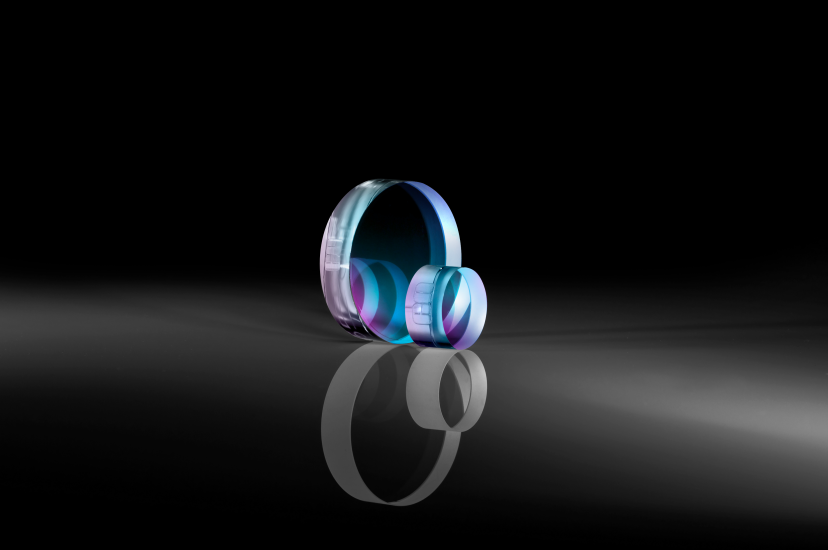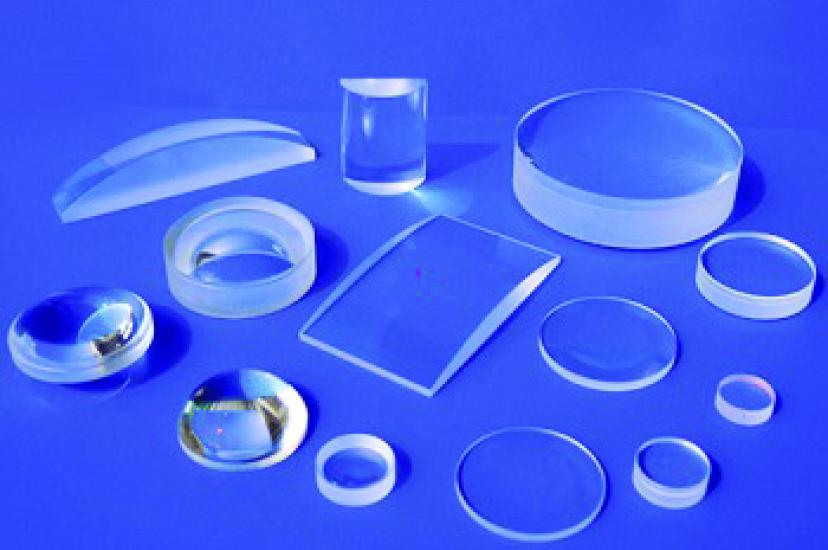The latest optical mirrors for 2024

Optical mirrors are highly engineered reflective surfaces used to control or direct light (Credit: Yury Zap/Shutterstock.com)
One of the most widely-used optical components, optical mirrors are leveraged in optical instruments to reflect light. But they can also perform other functions, for example, with the right coatings they can filter out certain wavelengths, enhancing safety, or split light into different directions. In terms of applications, they are used in illumination, interferometry, imaging, life sciences, astronomy, metrology, solar and semiconductors.
What are optical mirrors?
Optical mirrors are highly engineered reflective surfaces used to control or direct light. They are designed to reflect light with minimal distortion, making them essential in scientific and technological applications.
What are the main types of optical mirrors?
They can be flat, like plane mirrors, or curved, as seen in concave and convex mirrors. Concave mirrors converge light to a focal point, making them ideal for telescopes, while convex mirrors spread light, providing a wide field of view in devices like security cameras.

Unlock the Potential of High-Power Lasers with TECHSPEC® PeakPower High LDT Low GDD Ultrafast Mirrors
TECHSPEC® PeakPower High LDT Low GDD Ultrafast Mirrors utilise an innovative design approach to maximise laser damage threshold for ultrafast pulses, offering exceptional durability and precision. With a high laser damage threshold (LDT) exceeding 0.75 J/cm² for 25 femtosecond pulses at 920nm, these mirrors withstand intense energies, reducing the need for replacements.
Their near-zero group delay dispersion (GDD) minimises pulse stretching, preserving ultrashort pulse durations across a wide spectral range. With over 99.5% reflectivity and a 45° angle of incidence, these mirrors are ideal for high-energy applications in telecommunications, laser machining, and medical technology, ensuring reliable performance. Find out more about TECHSPEC® PeakPower High LDT Low GDD Ultrafast Mirrors at the Edmund Optics website.
SPONSORED BY

Some optical mirrors, known as dielectric mirrors, use multiple layers of materials to achieve high reflectivity at specific wavelengths, often used in lasers and precision optics. Metallic mirrors, coated with thin layers of metals, such as aluminium or silver, offer broad reflectivity across a range of wavelengths and are common in infrared and ultraviolet applications.
Characteristics of optical mirrors
Key characteristics of optical mirrors include reflectivity, surface flatness, and the material used in their construction, such as glass or fused silica. These mirrors are vital in devices like telescopes, microscopes, cameras, and lasers, where precise control over light is critical.
Optical mirrors on the market now
Vendors of optical mirrors and related products include Advanced Optics, which manufactures custom and precision optics, as well as off-the-shelf optical mirrors, optical windows, optical flats, optical filters, and optical lenses from prototype to production. The company carries a range of substrates in-house, it can precision polish up to lambda/20 and provides custom fabrication and coatings.

High quality optical lenses from CeNing Optics
CeNing Optics, founded in 2004, is offering high quality optical lenses including singlet lenses, doublet lenses, cylindrical lenses and powell lenses. The lens materials are sourced from Schott, CDGM, Ohara glasses. The lens diameters are available from 1mm to 250mm.
The best surface quality that can be reached is 10-5 S/D and 0.2 irregularity and 30 arcsec centration. Additional anti-reflective coating and high reflective coating can be applied on the surfaces upon request. All lenses are available in custom design and standard design. CeNing offers lenses from prototype to volume production with a reasonable cost. Find out more information by visiting the company's website.
SPONSORED BY

Alluxa’s Ultra series of thin-film optical filters and coatings are designed to be integrated into instruments in biotechnology, remote sensing, telecoms, chemical engineering and robotics, to name a few applications. Its thin-film optical filters and dielectric mirrors are all hard-coated using its Sirrus plasma deposition process on equipment that was designed and built in-house.
Edmund Optics offers a range of mirrors, ranging from those designed for high power, narrow-band laser line applications to actively deformable mirrors for adaptive optical systems. The firm produces a range of precision parabolic, spherical and flat mirrors with a number of different substrate materials, which are offered in various metallic and dielectric coatings to suit all application needs.
Inrad Optics fabricates transmission flats and precision window assemblies up to 500mm. Off-the-shelf interferometer flats are polished to λ/20 wave flatness and assembled in stress-free mechanical mounts.
Knight Optical can provide custom optical mirrors for use as reflectors across different wavebands dependent on the coating that is applied. Coatings include enhanced aluminium coating, 99.9% dielectric coating, UV aluminium/MgF2 coating, 98.5 per cent NIR dielectric coating, ion plated protected silver coating and protected gold coating. Mirror coatings can be applied to different optical components, including window, prisms and concave lenses.
Meller Optics manufactures coated and uncoated lenses, optical windows, prisms, mirrors and electronic substrates for lasers and analytical instruments. Materials used include sapphire, quartz, BK 7 and other common laser glasses, germanium, silicon, zinc selenide, zinc sulphide, fluorides and ruby.
Moeller-Wedel Optical produces stock and custom optical test equipment, autocollimators, electronic autocollimators, interferometers, automatic goniometers, focometers, collimators, testing telescopes, dioptre telescopes, camera testing instruments, binocular testing instruments, alignment telescopes and alignment collimators.
Nu-Tek Precision Optical specialises in the design and manufacture of custom and prototype precision optical components and systems, including on- and off-axis telescopes and laser beam expanders for the UV, visible and infrared spectra, optics to 60”, standard and gradient index lens assemblies, deep lightweight aspheres for space applications, and ultra-smooth, super-polished flats and spherical optics to 1 Angstrom rms. The company routinely handles requests for flat and spherical mirrors and aspheric mirrors.
Lambda Research Optics manufactures catalogue and custom lenses, mirrors, beamsplitters, windows, prisms, filters and polarisers for defence, commercial and medical laser applications. The company specialises in high-power coatings for excimer, YAG, fibre, CO2 lasers and FLIR coatings. It has served many industries to supply optical mirrors in a vast range of reflective coating options.
Laser Components has ion assisted deposition (IAD) and ion beam sputtering (IBS) coating capabilities. This is a precise and replicable method that is ideal for spectrally demanding applications, such as steep edge dichroic mirrors and very broad band mirrors. Process parameters such as beam energy, layer growth rate and oxidation level can be individually regulated to a high-precision during the coating process.
Perkins Precision Developments (PPD) manufactures high energy laser mirrors and precision optics for both prototype and volume OEM requirements. The company also offers custom IBS thin film coatings for visible to near-infrared wavelengths on customer supplied substrates. It uses IBS coating technology because it is ideal for complex spectral designs, high power lasers and applications where it is critical to minimise losses from absorption and scatter.
Precision Optical can handle demanding requirements for optical windows and mirrors. The company’s coating chambers can be configured to handle optical windows and mirrors ranging in size from 3mm to 660mm. Capabilities include laser line, broadband and multi-band anti-reflection coatings, dielectric mirrors with high laser damage resistance, and plasma or ion enhanced dielectric coatings with excellent thermal stability. The company also offers protected/enhanced aluminium and silver mirror coatings and neutral density filters.
Using a state-of-the-art replication process, Spectrum Scientific offers a cost-effective solution to producing high-volume precision aspheric mirrors whilst maintaining the same optical performance and environmental stability of mirrors produced using conventional methods. Available on a wide range of substrates, including glass, aluminium and ceramics, replicated mirrors can be used in a variety of applications where complex optical surfaces are used.
Space Optics Research Labs (SORL) manufactures stock and custom off-axis parabolic mirrors, as well as flat, spherical and aspheric mirrors in ceramic, glass and metal. In addition, the company offers precision mirror mounts, reflective beam expanders, collimators, FLIR test stations, lidar telescopes, fourier transform systems, IR lens assemblies and a LUPI-IIA interferometer.
Sydor Optics fabricates a range of metallic and dielectric optical mirrors to meet custom specifications and requirements. The mirrors are manufactured from various materials in various shapes and sizes, including lightweight mirrors to the utmost precision and exacting engineering standards. The company has a large collection of double-sided grinding and polishing machines to manufacture custom optical mirrors with virtually any optical coating paired with precision flatness, surface roughness and other critical tolerance specifications.
Zygo creates precision optical mirrors using stringently-controlled fabrication processes, enabling them to function reliably in a variety of extreme environments. Mirrors can be customised to meet requirements and also be light-weighted for applications where weight is critical, such as aerospace. This is a process in which material is removed from an optical component, while still preserving the mirror’s optical performance.
This is not an exhaustive list. If you provide products for optical mirrors and would like your company to be included, please let us know at: editor.electro@europascience.com

